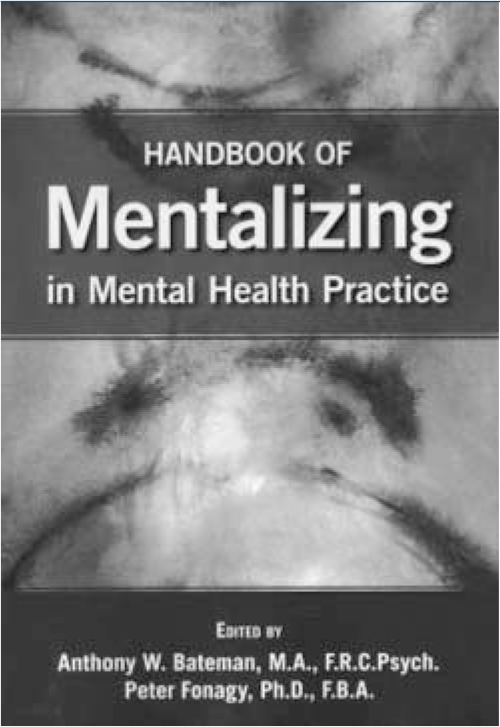
Having just finished this weighty tome, I find myself feeling as though I have just eaten a meal straight out of Myhrvold's molecular gastronomic bible, Modernist Cuisine. It has been fascinating, full of goodies but my head is reeling; as much as anything else because of the sheer depth of it all. Like cookbooks, it may be something to dip into rather than read cover to cover.
Bateman and Fonagy invite you into a world of neurobiology, attachment, clinical vignettes and technical know-how. All of this whets your appetite for the meal to come, which, when it arrives, can feel hard to swallow and does presuppose in the reader a certain level of grounding in this wide array of subjects. My occasional discomfort may be more to do with me as a reader though, coming from a psychoanalytic background and perhaps finding it hard to let go of the ideas from my analytic training. The authors of most chapters acknowledge this problem and try hard to collaborate with other modalities, including systemic family therapy and cognitive-behavioural therapy to name only two, but I wonder whether I will not be the only psychotherapist who feels this might be diluted too far at times. To temper this, the baby is not thrown out with the bathwater and concepts such as countertransference and Winnicott's ‘holding environment’ are mentioned often.
With the above in mind, I should acknowledge that I practise mentalisation-based therapy in a forensic setting and have found it to be incredibly helpful in working with patients with a diagnosis of personality disorder. Holding the ‘detective Columbo’ style stance of being curious and not-knowing that the book advocates and that is so valuable clinically lures you into new ways of thinking that are a pleasure. It also allowed me to take in some of the tasty morsels that are available. These include but are not limited to a significant reappraisal of the nosology of psychiatric conditions; timely reminders of the importance of humour, formulation and of how hard it can be on clinicians to work with disturbed patients.
Clear descriptions, with vivid vignettes, of the various ways mentalisation can break down proved useful throughout. Of these, my favourite was thinking of psychic equivalence as being like the state children are in when they believe there really is a tiger under the bed – mirroring the experience of a patient with borderline personality disorder of having thoughts that are felt to be too real.
Like Hugh Fearnley-Whittingstall's River Cottage books, it can also feel like a sociopolitical document as much as a handbook. Sections on thinking how mentalisation-based therapy could be applied to units, wards, hospitals, prisons and even society at large were thought provoking in the best way possible and could lead clinicians to trying it in their own environs.
To finish, the editors' and contributors' emphasis on empirical scientific ideas might certainly have been pleasing to Freud, with his belief in ‘The Project for a Scientific Psychology’, but the book can portray this as a manifesto, which awaits some time for digestion before the reader can fully appreciate it.





eLetters
No eLetters have been published for this article.